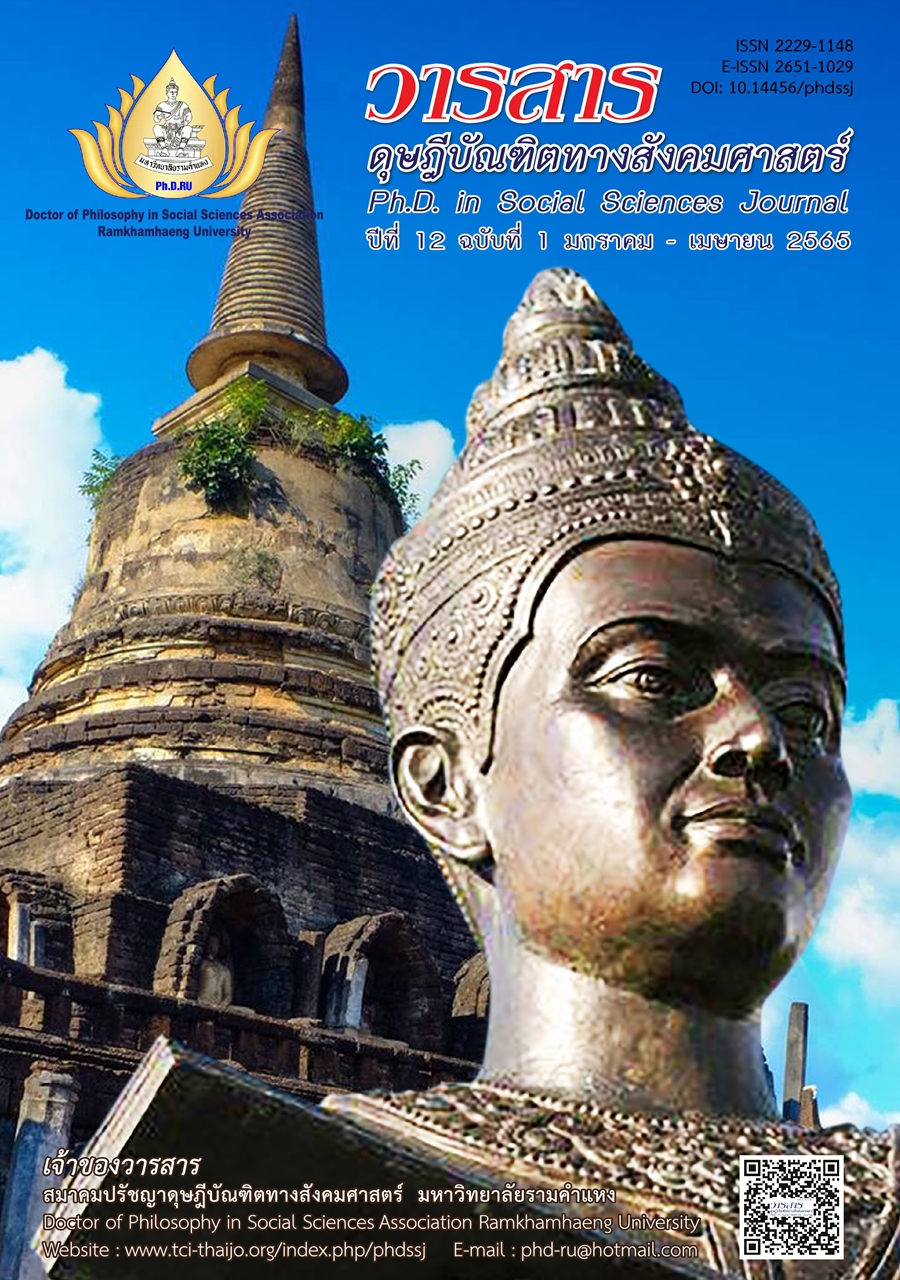Legal Measures to Solve the Problem of Voluntary Prostitution in the Kingdom of Thailand
Main Article Content
Abstract
The purposes of this research were to study (1) the problems of current Thai laws regarding voluntary prostitution, (2) concepts, theories and literature related to voluntary prostitution, (3) to compare the rules of the law relating to prostitution voluntarily in the prohibited system, the legalized system and the abolished system, (4) to analyze suitable legal measures for resolving voluntary prostitution in the Kingdom of Thailand, (5) to suggest on how to revise the law on voluntary prostitution appropriately and in line with the current Thai society context. The research used a qualitative model and collecting data through document research and in-depth interviews and analyzed the data by using content analysis techniques and comparison interpretation.
The results showed that at present, the law does not intend to seriously prevent and suppress prostitution. But at the same time, it does not legalize the prostitution business conduct. The law allows and legalize the own contact or solicitation for prostitution in a concealed and hidden manners. But there are no rules to organize such conduct. Yet, the penalty rates for those who contact or persuade for prostitution by themselves in a publicly open manner are too low, and the law does not specify the offense of those who agree to purchase the said prostitution service. This causes prostitution not be legally protected and is exploited by a third party. Therefore, the matter must be made legal under the rules prescribed by law, amendment of the penalty rates and determination of an offense for prostitution should be considered as well.
Article Details

This work is licensed under a Creative Commons Attribution-NonCommercial-NoDerivatives 4.0 International License.
Academic articles, research articles, and book reviews in the Ph.D. in Social Sciences Journal are author’s opinions, and not the publisher’s, and is not the responsibility of the Ph.D. in Social Sciences Journal Philosophy Association, Ramkhamhaeng University. (In the case that research is done on human, the researcher has to be trained in Ethics for Doing Research on Human Training and has to produce the evidence of the training).
References
Charoenthanawat, K. (2015). Basic principles of public law (3rd ed.). Winyoochon. [In Thai]
Chootinant, A. (2014). Criminology and penology (2nd ed.). Winyoochon. [In Thai]
Danielsson, A. (2017). Competing Ideas of Regulationism – What can be learnt from the German move to a more comprehensive regulation of prostitution?. International Journal of Advanced Research, 5(3), 2149-2166.
Hoondee, S., & Lengvithaya, C. (2015). Legal measures relating to the prevention and suppression of prostitution. Veridian E-Journal, 8(2), 464-482. [In Thai]
Ngarmarunchot, B. (2011). Review of the development of “education” buying-selling sex services. Retrieved from https://issuu.com/bankngamarunchot [In Thai]
Rayanakorn, K. (1995). A study of laws relating to prostitution and traffi cking in women. Operational Research Project Traffi cking in women Foundation for Women. [In Thai]
Royal Institute. (2013). Royal Institute Dictionary B. E. 2554 (2nd ed.). Royal Institute. [In Thai]
Saenguthi, Y. (2016). Basic knowledge about general law (20th ed.). Thammasat University Press. [In Thai]
Samran, P. (2006). Research report Legal issues relating to prostitution in massage parlors. University of the Thai Chamber Commerce. [In Thai]


